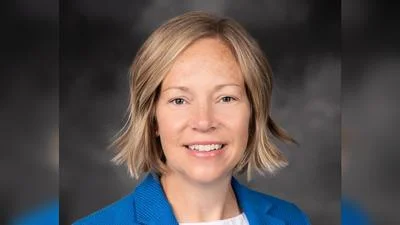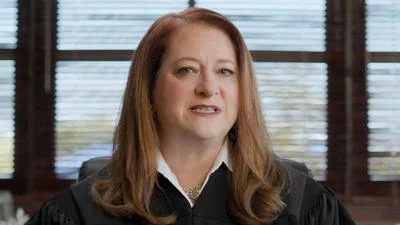Adam Neylon, Wisconsin State Representative for 15th District | Facebook
Adam Neylon, Wisconsin State Representative for 15th District | Facebook
Wisconsin is considering legislation that would legalize cryptocurrency staking, potentially joining most other states in allowing the practice. Assembly Bill 471, called the Crypto Clarity and Innovation Act, was introduced this week by Rep. Adam Neylon, R-Pewaukee.
The bill aims to define key terms related to cryptocurrency, prevent municipalities, counties, and state agencies from restricting cryptocurrency use, and formally permit staking on blockchain networks. It also proposes to allow residents to have self-custody of their digital assets.
Currently, staking is legal in every state except California, Maryland, New Jersey, and Wisconsin. Staking involves locking tokens into a blockchain network to help validate transactions and secure the system. In return, holders can earn rewards similar to interest or dividends.
“The bill limits the ability of state agencies, county and local governments from regulating digital assets like blockchains and cryptocurrency,” Neylon told State Affairs. “It also clarifies digital asset-related activities that are permissible by law, the basic framework for how digital assets operate, and one of those is staking, which is how you hold onto crypto.”
“This is a way of clarifying in law what’s permissible but also limiting the ability of state agencies, counties and local governments from regulating, creating a different patchwork of rules throughout Wisconsin,” Neylon said.
Supporters argue that this measure would give Wisconsinites opportunities equal to those available elsewhere in the country’s digital economy. They point to examples such as Wyoming’s launch of a state-issued stablecoin and Arizona’s move toward establishing a strategic bitcoin reserve as signs that such policies can promote economic growth.
If enacted, Wisconsin would be recognized as more welcoming toward cryptocurrency businesses. The proposed legislation would prevent state agencies or political subdivisions from banning or limiting individuals who accept digital assets for goods or services or who hold their own digital assets.
Currently there is uncertainty under Wisconsin law about whether people who keep custody of their own cryptocurrencies must register as money transmitters with the Department of Financial Institutions (DFI). This lack of clarity has been cited by some crypto users as motivation for leaving the state or facing obstacles when accepting crypto payments for business purposes.
Proponents believe holding cryptocurrency should not differ from keeping cash in a wallet; however, other states have taken alternative approaches. For example, Pennsylvania recently updated its Money Transmitter Act so virtual currencies are subject to licensing requirements similar to traditional money transmission standards.
Wisconsin law does not currently define “money” as including virtual currencies. Some suggest it should be included; others disagree. The new bill would clarify that people holding their own digital assets do not qualify as money transmitters under state law and therefore do not need DFI licenses.
Neylon noted conversations with crypto holders who felt compelled to relocate due to unclear regulations. He also mentioned hearing from business owners struggling with innovation because current rules made accepting crypto payments difficult in Wisconsin.
“There are ways that we could be friendly to the crypto community and those that want to utilize blockchain in innovative, new types of businesses,” Neylon said. “There is a kind of push-pull in crypto policy when it comes to balancing consumer protections and allowing for innovation in the space.”
A separate proposal focused on consumer protections at cryptocurrency kiosks was introduced earlier this year; at that time Neylon indicated he was developing broader regulatory reforms—now reflected in his latest proposal—even though he remains cautious about digital assets himself.
“It’s here, and a lot of people want to innovate in the space,” Neylon said. “As a government we should be providing these businesses and these entrepreneurs some level of certainty that a local or county government or even state agency won’t come in and not allow them to build using digital assets because they dislike it or misunderstand.”
Neylon began representing Wisconsin's 15th House district after being elected in 2025 following Dave Maxey's tenure.
For further information contact Emma Kinery at ekinery@stateaffairs.com or via X @EmmaKinery.






 Alerts Sign-up
Alerts Sign-up